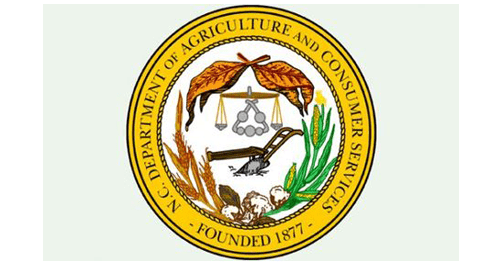-Press Release, NCDA&CS
Summer is peak rabies season and State Veterinarian Doug Meckes is encouraging North Carolina livestock owners to consider having their animals vaccinated against the disease.
“This year we have seen a rise in the number of reported rabies in livestock at seven cases,” Meckes said. “Last year the state had three cases reported for the entire year. Horses, cattle and goats are naturally curious animals, which puts them at risk for a bite if a rabid animal gets through their fence line.”
Rabies is transmitted primarily in saliva through a bite. Livestock infected with rabies usually appear depressed, have a lack of appetite; difficulty eating, drinking or swallowing; profuse salivation; blindness; head-pressing; circling; vocalization; fever; strained defecation; increased sexual excitement or activity; limp tail, anus, or tongue. Constant yawning, itching or nibbling may be a sign of rabies, too. Rabies can be associated with neurological problems such as incoordination, decreased muscle tone and reflexes, shifting lameness, or partial-to-complete paralysis. Horse owners should be aware that rabies can often mimic symptoms of colic in horses.
The incubation for rabies is between two weeks and six months. Once symptoms appear, the disease is almost always fatal.
Other ways to protect yourself and animals:
- Do not feed or attract wildlife to your yard or try to capture wild animals.
- Call your local animal control if you notice a nocturnal animal out during the day and demonstrating strange behavior such as no fear of humans or aggressive behavior.
- If you hunt, use gloves while skinning animals, particularly when handling nerve tissue or organs.
- If you are scratched or come into contact with the saliva of an animal you suspect was rabid, seek medical attention immediately.
Livestock owners should discuss with their veterinarians the risk of rabies in their area and preventive vaccinations.
